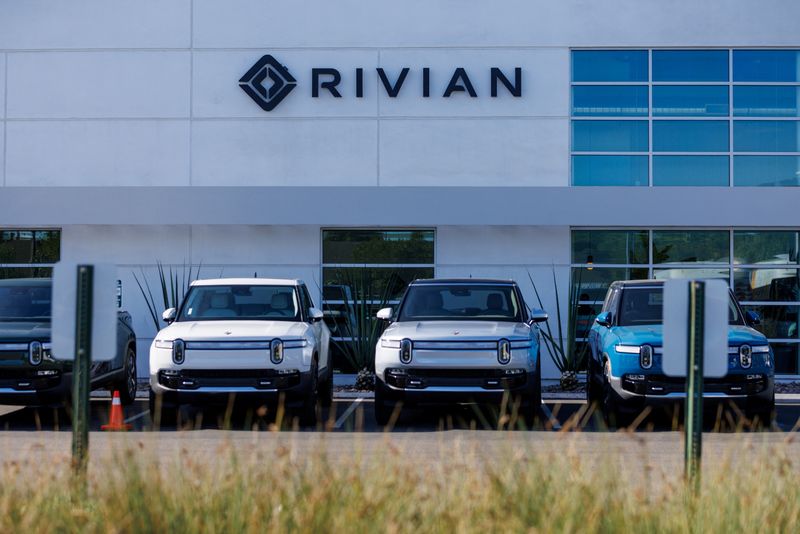(Reuters) -Rivian Automotive reported a sharp fall in second-quarter deliveries on Wednesday, as demand for its electric vehicles takes a hit from stiff competition and tariff-driven economic uncertainty, sending its shares down 3.5%.
Trade tariffs imposed by U.S. President Donald Trump have led to a surge in manufacturing costs for the sector, with carmakers scrambling to reorganize supply chains to mitigate the hit to their businesses.
High interest rates are also holding back some buyers, while many are taking to cheaper hybrid- and gasoline-powered cars to avoid pure-electric vehicles due to their higher sticker prices and upkeep costs.
Rivian delivered 10,661 vehicles in the quarter ended June 30, a fall of 22.7% from the same quarter last year, but in line with Visible Alpha estimates.
The company also produced fewer-than-expected vehicles as it gears up to launch its refreshed 2026 models of the R1T truck and R1S SUV.
It made 5,979 units in the quarter, compared with estimates of 11,330 units, according to four analysts polled by Visible Alpha.
The company also reiterated its forecast for annual deliveries of between 40,000 to 46,000 vehicles.
The rise in vehicle costs could put pressure on Rivian’s margins at a time when the company has been looking to boost profits and cut down on costs ahead of the roll-out of its more affordable R2 SUVs next year.
U.S. Senate Republicans last week released a bill that would end the $7,500 tax credit on new electric vehicle sales and leases on September 30, hitting sales prospects for EV firms.
Following its first-quarter gross profit announcement in May, Rivian said it received an equity investment of $1 billion from Volkswagen Group as a part of its $5.8 billion joint venture with the automaker.
Rivian is expected to announce its second-quarter financial results after markets close on August 5.
(Reporting by Zaheer Kachwala in Bengaluru; Editing by Devika Syamnath)
